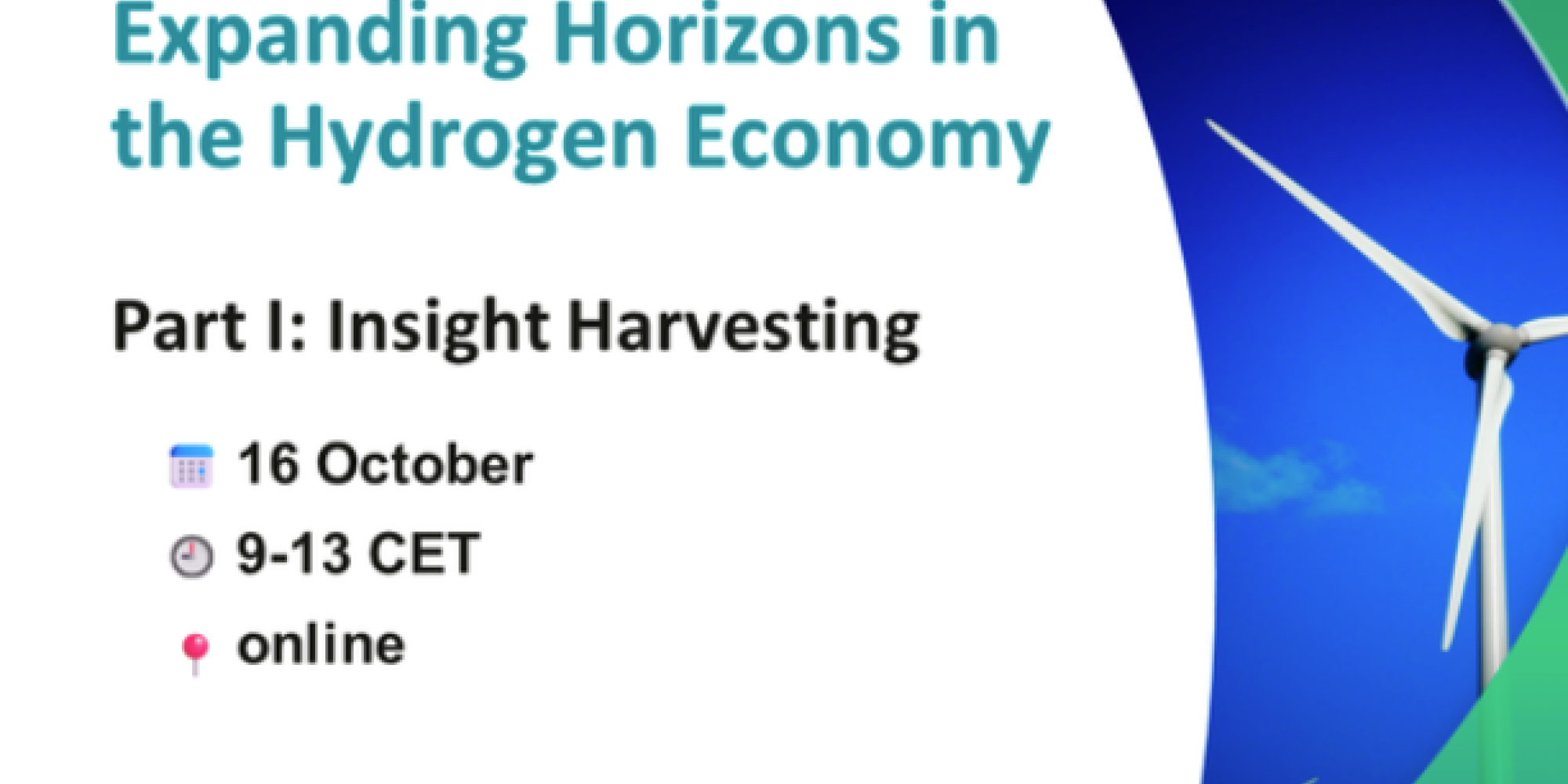
Join us on this series of events organized by Clean Energy Transition Partnership & BalticSeaH2 Valley to contribute your expertise, learn from industry leaders, and help shape the future of the hydrogen and CCU economy across Europe.
About event
The Clean Energy Transition Partnership (CETP) is proud to announce a series of pivotal events focusing on the integration of hydrogen, energy, and Carbon Capture and Utilization (CCU) value chains. These events are designed to foster innovation, shape markets, and address the critical challenges and opportunities in the emerging hydrogen and CCU economy.
This series is open to all interested innovators, companies, policymakers, researchers, and other stakeholders who are committed to advancing the hydrogen and CCU sectors. Whether you are directly involved in these technologies or have a broader interest in the sustainable innovations and value chains, your insights and participation are invaluable.
Part I: Insight Harvesting (16 October 2024)
This virtual event will gather key stakeholders to explore the current state of integrated hydrogen, energy, and CCU value chains. Participants will engage in discussions to identify research, development, and innovation needs, setting the stage for future market shaping.
Programme Summary:
Keynote: Current state of integrated hydrogen-energy-CCU-material value chains by Herib Blanco, IEA, Hydrogen Energy.
Sessions:
1. Research/Industry Highlights and Challenges
2. Industry Panel
3. Interactive Breakout Sessions
Speakers & Panellists Include:
• Herib Blanco: IEA, Hydrogen Energy, University of Groningen (Keynote)
• Tiina Paloniitty: Regulation & Policies, University of Helsinki
• Venizelos Efthymiou: Electricity Grid Flexibility, University of Cyprus
• RESILIENT: Integrated Hydrogen & CCU Value Chains, CETPartnership Project
• Carbonaid: CCU-Concrete Value Chain, Finland
• Isidoro Tapia: Financing/H2, European Investment Bank (EIB)
Outcome: Insights from the series will guide strategic actions and be shared with participants and partners to drive the advancement of hydrogen & CCU value chains across Europe.
Panel discussion: Enabling the Hydrogen and CCU Transition for a Net-Zero Future.
Pirita Mikkanen, Vice President, Energy, Metsä Group (forest industry)
Essi Laitinen, VTT / gender dimension manager, BalticSeaH2
Paul Lucchese, chair, IEA hydrogen TCP
Jonne Hirvonen, COO, Carbonaide
Isidoro Tapia – Senior Energy Economist, European Investment Bank
Join us to contribute your expertise, learn from industry leaders, and help shape the future of the hydrogen and CCU economy across Europe! Your participation is crucial in driving forward innovative solutions that will define the next generation of sustainable innovations.
Key messages
From the insights shared in the presentations, panel discussion, and break-out group discussions, we distilled ten key messages that encapsulate the collective expertise of our diverse stakeholders. These messages serve as a foundation for advancing hydrogen-2-X value chains and hydrogen-CCU markets and will be built upon in the follow-up event focused on Market Shaping to drive actionable solutions.
- Hydrogen will play a vital role across multiple sectors by 2050. It is essential not only as an energy carrier but also as a building block for products like ammonia and methanol, requiring expanded innovation and strategic planning.
- Hydrogen use should be prioritized in markets with immediate demand. Policymakers need to incentivize hydrogen applications that are currently viable and support emerging uses through market mechanisms and policy initiatives.
- Europe’s regulatory landscape for CCU remains fragmented. Coordinated policy efforts are necessary to streamline regulations and foster a sustainable hydrogen-CCU value chain.
- Financing the hydrogen economy presents significant challenges. Transparent electricity pricing and innovative financing mechanisms are crucial to support infrastructure development and reduce dependency on external markets.
- Hydrogen enhances grid flexibility and system resilience. As a storage solution, it can offset the intermittency of renewable energy sources and support diverse applications across the energy system.
- Developing regional hydrogen ecosystems is essential for sustainable growth. Local conditions, such as grids and available resources, should be leveraged to support community resilience and equitable economic benefits.
- Social acceptance is critical for the success of hydrogen and CCU projects. Early communication and community engagement are vital in addressing public concerns about infrastructure and biodiversity impacts.
- Industrial symbiosis enhances public support for hydrogen projects. Sharing resources among industries can lead to greater efficiency and community buy-in, aligning with broader sustainability objectives.
- Equitable distribution of benefits and burdens is necessary in the hydrogen transition. Regions should receive adequate support in the form of jobs and tax benefits to avoid disparities and ensure sustainable development.
- A long-term vision for integrating hydrogen and CCU is necessary. The CETPartnership could unify stakeholders around a comprehensive strategy that addresses technical and societal challenges for a sustainable hydrogen-2-X system.
Venizelos Efthymiou: Electricity Grid Flexibility, University of Cyprus
RESILIENT: Integrated Hydrogen & CCU Value Chains, CETPartnership Project
Carbonaid: CCU-Concrete Value Chain, Finland
Isidoro Tapia: Financing/H2, European Investment Bank (EIB)
ACLOUD - Magnus Ryden
Tiina Paloniitty: Regulation & Policies, University of Helsinki